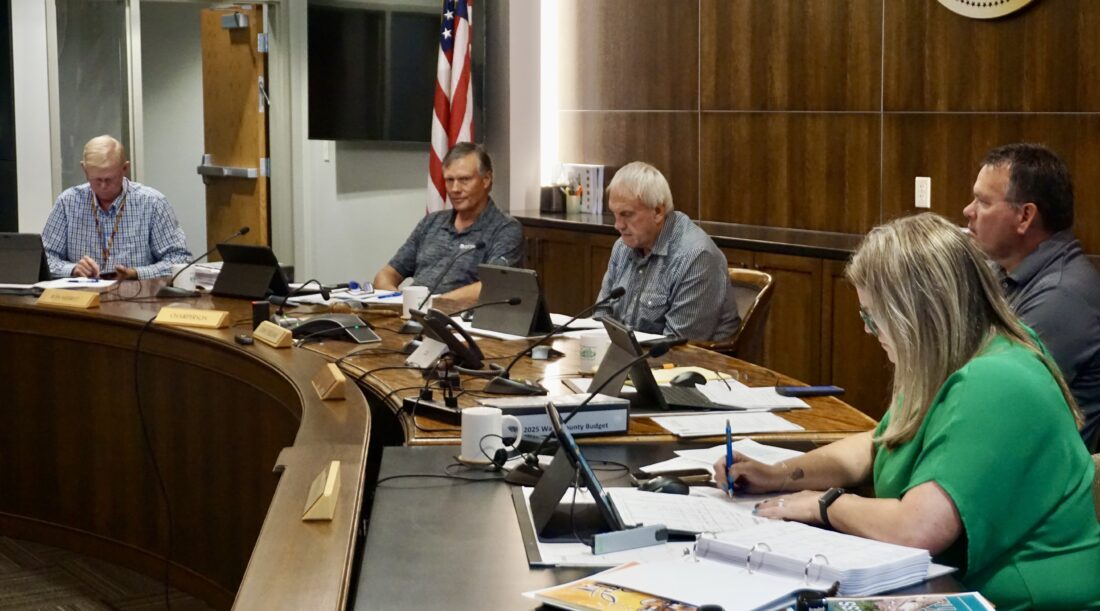County required to find more budget cuts

Jill Schramm/MDN Ward County commissioners discuss the county’s 2026 preliminary budget at their meeting Aug. 5.
After tightening a 2026 budget draft to a spending level deemed as essential, Ward County commissioners still face the need to cut $745,120 from the property tax levy to fall under the state’s 3% cap on increases.
At the commission’s Aug. 5 meeting, Chairman John Fjeldahl said a public vote to increase the levy beyond the cap isn’t an option.
“If we had to decide to go to a vote with this, and we decided not to cut anymore, we don’t have time to have a vote. So, we don’t have a choice here. We’ve got to seriously cut something,” he said.
Facing an Aug. 10 deadline to adopt a preliminary budget, the commission approved the $68 million spending plan despite not having a clear picture yet on cash on hand or employee health insurance costs.
“We almost have to approve what we have now,” Commissioner Miranda Schuler said. “We are missing a large piece of information for us to help determine how we’re going to get to these numbers, and we don’t have a choice because we’re under a deadline.”
The commission expects to further examine the budget for adjustments before the public hearing on Sept. 17.
Commissioners would need to look at salaries and benefits, staffing levels and other departmental expenses as well as money allocated to historical societies, the State Fair and economic development groups, which already have had their requests cut.
Commissioners were reluctant to make more cuts until additional information becomes available on the county’s finances and health insurance costs. They tossed around ideas for potential budget savings, though.
The commission looked at closing two smaller polling places and going to voting by mail to save a few bucks, but closing polls at Sawyer and Ryder only nets $2,500.
“It’s literally a drop in the bucket if we are trying to find $745,000,” Schuler said.
Merritt noted the juvenile detention center, which is high cost and serves a limited number of juveniles, could be targeted for elimination. However, he said, it wouldn’t absolve the county of its responsibility to provide services by paying to send the youth to other facilities.
Commissioners also looked at increasing revenue other than property taxes, such as taking in more jail inmates under contract. Auditor/Treasurer Marisa Haman said it is difficult to calculate revenue based on actions of other government agencies.
She mentioned options to increase permits and licenses, document copying fees and property assessment fees charged to towns and townships. She suggested investing sales tax in certificates of deposit to gain more interest on money that is held temporarily. None of the options would generate significant revenue, she said.
The commission identified a way to reduce the $745,000 by increasing the budget amount the 3% is calculated on, without actually having to spend the money, which Schuler described as “playing the numbers game.” Commissioners had no appetite for that option, either.
“If the intent was to constrain budgets and the Legislature said you can only go up 3%, if that means reducing services, then we reduce services,” Olson said.
“We need to make this reduction, and we need to make even more to make this sustainable going forward,” Merritt said, stating the commission should consider a cut of $1 million-$1.5 million. “We need to do it. Get it over with, and if it’s not working out for our citizens, they’re going to let us know, and they need to let the legislators know that something needs to change.”



